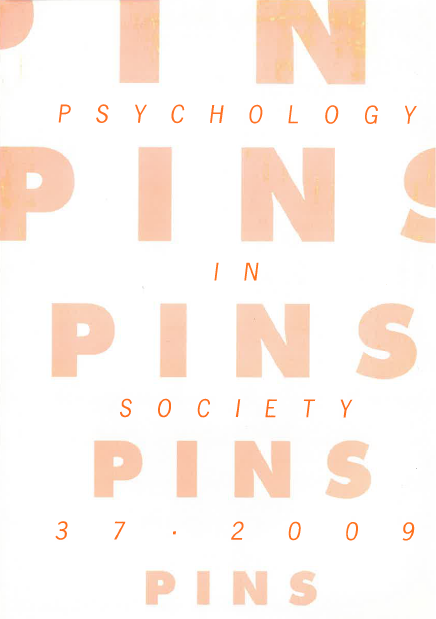PSYCHOLOGICAL EXPERTISE AND GOVERNMENTALITY IN DEMOCRATIC SOUTH AFRICA: A TRACER STUDY OF MASTERS GRADUATES FROM UKZN
DOI:
https://doi.org/10.17159//2309-8708/2009/n37a2Keywords:
governmentality, psychological expertise, relevance, self-regulation, community, developing worldAbstract
Foucault (1978) proposed that scientific discourses can become objects for political practice. Following from this, Nikolas Rose has elaborated how psychological expertise is implicated in the government of conduct in liberal democracies. In this study these ideas are explored in the local South African context, paying particular attention to post-apartheid imperatives to extend psychological services to socially relevant spheres. The sample was drawn from psychologists who graduated from UKZN (University of KwaZulu-Natal) between 1993 and 2003/4. Data were collected about problems that psychologists see in their daily working environments, their causes and the practices used to solve them. Findings indicate that psychologists deal with a range of traditional psychological problems as well as diverse social/structural problems. Individualised interventions, encouraging self-regulation, dominate both these groups of problems, including interventions focussing on the community and social change. We argue that psychological expertise as a tool for government finds its limits in conditions of extreme social and economic hardship.
Downloads
Downloads
Published
How to Cite
Issue
Section
License
This journal is an open access journal, and the authors' and journal should be properly acknowledged, when works are cited.
Authors may use the publishers version for teaching purposes, in books, theses, dissertations, conferences and conference papers.
A copy of the authors’ publishers version may also be hosted on the following websites:
- Non-commercial personal homepage or blog.
- Institutional webpage.
- Authors Institutional Repository.
The following notice should accompany such a posting on the website: “This is an electronic version of an article published in PINS, Volume XXX, number XXX, pages XXX–XXX”, DOI. Authors should also supply a hyperlink to the original paper or indicate where the original paper (http://www.journals.ac.za/index.php/pins) may be found.
Authors publishers version, affiliated with the Stellenbosch University will be automatically deposited in the University’s’ Institutional Repository SUNScholar.
Articles as a whole, may not be re-published with another journal.
The copyright of the article(s) lies with the author(s).
The copyright of the journal lies with PINS-psychology in Society.
The following license applies:
Attribution CC BY-NC-ND 4.0 - https://creativecommons.org/licenses/by-nc-nd/4.0/

